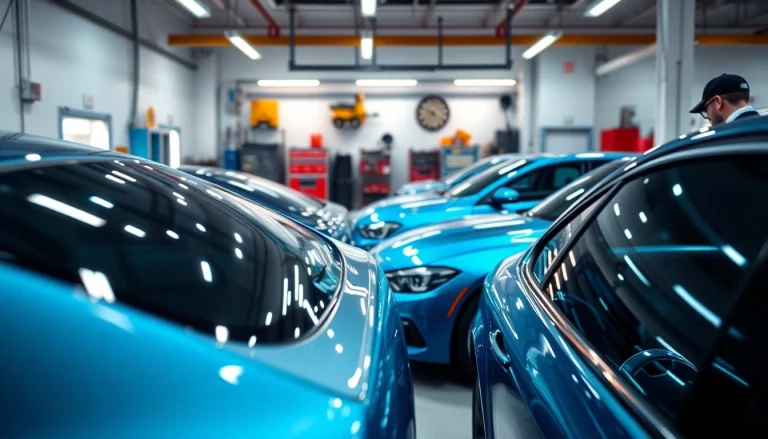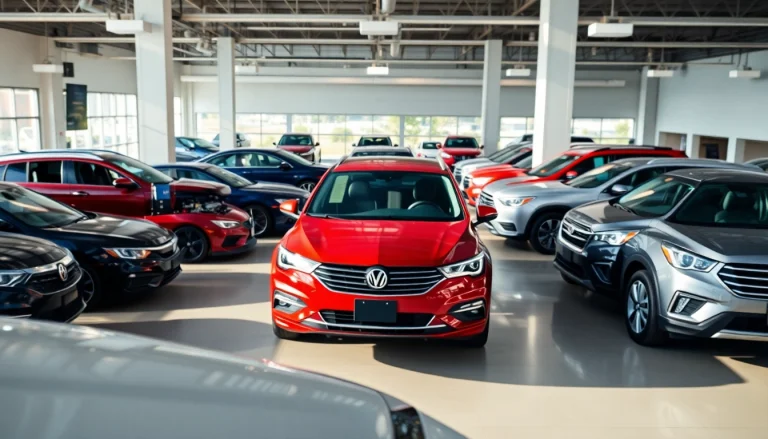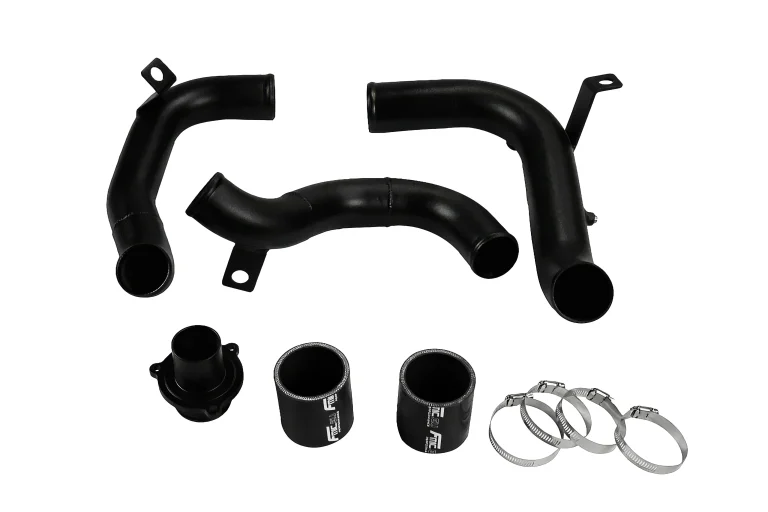
Understanding What Makes a Car Perfect
In a world filled with countless vehicle options, the idea of a perfect car is subjective and varies from one person to another. Each individual’s preferences, lifestyle, and needs play a significant role in determining what “perfect” truly means. In this section, we will delve into the essence of the perfect car, including its characteristics, common misconceptions, and the importance of personalizing your definition of perfection.
Defining the Ideal Characteristics
When contemplating the characteristics that define a perfect car, several aspects come to mind:
- Performance: A perfect car should offer excellent acceleration, handling, and braking. Drivers often seek vehicles that provide smooth rides, responsive steering, and efficient powertrains. Performance metrics such as horsepower, torque, and driveterrain (rear-wheel, front-wheel, or all-wheel drive) play significant roles in a vehicle’s desirability.
- Fuel Efficiency: With rising fuel costs and environmental concerns, fuel efficiency is paramount. A perfect car balances power with economical fuel consumption to save money and reduce emissions.
- Safety Features: Vehicles must prioritize safety. Features such as advanced driver-assistance systems (ADAS), multiple airbags, crash safety ratings, and stability control systems are crucial in ensuring the well-being of occupants.
- Comfort and Design: The perfect car should provide a comfortable driving experience. This can encompass spacious interiors, high-quality materials, advanced technology interfaces, and user-friendly controls, allowing the driver and passengers to feel at ease throughout their journey.
- Reliability: A set of reliable vehicles that require minimal maintenance and offer long-term durability enhances the perception of perfection. Ownership satisfaction increases when vehicles consistently meet expected performance standards over time.
Common Misconceptions about the Perfect Car
Many people fall prey to certain misconceptions when it comes to identifying the perfect car:
- Price Equals Quality: While higher-priced vehicles often come with better features, this is not universally true. Many affordable options offer fantastic value without compromising crucial aspects like safety and reliability.
- More Features Equals Better Car: It’s common to assume that more gadgets and tech mean a better car. However, the key is how well these features complement your preferences and needs. Simplicity can be just as effective, if not more so, than complexity.
- Luxury Cars Are Always Superior: While luxury automobiles boast exquisite designs and state-of-the-art technology, many non-luxury brands offer exemplary performance, comfort, and reliability, challenging the notion that luxury equals perfection.
Personalizing Your Definition of Perfection
To discover your perfect car, personalizing your definition of perfection is vital. Here are a few tips to help you navigate this transformative journey:
- Assess your lifestyle: Are you a city dweller needing a compact car for maneuverability, or do you live in a rural area that demands a robust SUV?
- Consider your family size and needs: Larger families may require more spacious vehicles, while singles or couples can explore sportier options.
- Reflect on your driving habits: If you often embark on long drives, comfort and fuel economy take precedence. For thrill-seekers, performance attributes like acceleration might be more appealing.
Key Factors to Consider When Choosing Your Perfect Car
Choosing the right car requires careful consideration and assessment of various factors. Below, we explore several critical elements that contribute to finding your ideal vehicle.
Understanding Your Needs and Lifestyle
Every person’s needs differ, creating a unique foundation for selecting a perfect car. Understanding your lifestyle can lead to better decision-making:
- Commuting Needs: Daily commuters might prioritize fuel efficiency and comfort, while those who travel frequently may search for technology that enhances connectivity.
- Family Dynamics: Families will likely benefit from a vehicle with ample seating and cargo capacity, ensuring that road trips and daily activities are comfortable and convenient.
- Hobbies and Interests: If outdoor adventures are part of your lifestyle, a vehicle with all-terrain capabilities becomes a vital factor in your decision.
Budgeting for Your Perfect Car
Establishing a realistic budget is paramount in your search for the perfect car, and this extends beyond the initial purchase price:
- Purchase Price: Determine a budget based on your financial situation and preferences for new versus used vehicles.
- Insurance and Maintenance: Ensure to factor in the cost of maintenance and insurance premiums, which can significantly impact your overall expenditure.
- Fuel Costs: Assess the vehicle’s fuel economy to estimate potential fuel expenses impacting your long-term budget.
Evaluating Performance and Efficiency
The performance and efficiency of a vehicle often dictate the purchasing decision. Here are specific areas to evaluate:
- Engine Options: Consider different engine sizes and types (e.g., turbocharged vs. naturally aspirated) to determine the right performance balance for your needs.
- Transmission: Selecting between automatic and manual transmission affects driving experience and performance based on personal preference.
- Fuel Type: Assess whether you want a petrol, diesel, hybrid, or electric vehicle, as each offers different benefits and limitations regarding performance and environmental impact.
Where to Search for Your Perfect Car
Once you have a clear understanding of what you’re looking for in a car, it’s time to explore the various places to find your perfect match.
Exploring Dealerships and Showrooms
Visiting dealerships allows you to experience vehicles in person. Here are some advantages to consider:
- Hands-On Experience: You can physically assess the build quality, sit inside the car, and test various features and technologies.
- Professional Assistance: Sales representatives can provide expert guidance and answer any questions about vehicle options, financing, and warranties.
- Incentives and Offers: Many dealerships offer special financing options or incentives that could save you money when purchasing.
Online Platforms and Resources
The digital age has transformed how buyers search for cars, offering comprehensive online resources:
- Car Rating Websites: Websites such as Kelley Blue Book allow users to filter vehicles based on preferences, making it easier to find the right car.
- Online Marketplaces: Platforms like Autotrader and CarGurus provide expansive listings of both new and used cars, often allowing for price comparisons.
- Seller Reviews: Checking reviews of cars and dealerships can provide insights into experiences of previous buyers, helping guide your decision.
Leverage Social Media and Reviews
Social media can also yield valuable insights into the perfect car:
- Community Groups: Join groups dedicated to car enthusiasts or specific brands to share experiences and recommendations.
- Influencers and Vlogs: Numerous automotive influencers provide car reviews, which can help you assess the pros and cons of various models before making a decision.
- Forums and Discussion Boards: Websites like Reddit or automotive forums allow for discussions on various car attributes, offering insights you may not find elsewhere.
Test Driving: The Final Step to Finding the Perfect Car
After conducting thorough research and narrowing down choices, the final step in identifying your perfect car is the test drive. This is a crucial phase, allowing you to experience the car firsthand.
What to Look for During a Test Drive
Efficient test driving involves assessing multiple aspects of the vehicle:
- Driving Comfort: Pay attention to seat comfort, visibility, and how intuitive controls feel while driving.
- Engine Performance: Assess how well the car accelerates, handles tight corners, and overall power during the drive.
- Noise Levels: Observe how well the car dampens road noise, as excessive noise can distract from the driving experience.
Assessing Comfort and Features
Beyond performance, take the time to evaluate comfort and desired features:
- Interior Space: Verify that there’s ample space for passengers and cargo based on your typical usage.
- Navigational Technology: Familiarize yourself with the infotainment systems, including their responsiveness and ease-of-use.
- Safety Features: Ensure that the vehicle is equipped with safety features that meet your expectations.
Making the Decision: Trusting Your Gut
After evaluating all facets of the car and considering your experience, trust your instincts. If you feel that the vehicle meets your needs and you can envision yourself driving it regularly, you may have discovered the perfect car for you.
Maintaining Your Perfect Car After Purchase
Purchasing your ideal car is just the beginning. Proper maintenance and care are crucial to ensure the longevity and performance of your vehicle.
Regular Maintenance Tips
Staying proactive with vehicle maintenance can extend its lifespan and retain performance levels:
- Routine Inspections: Schedule regular inspections to identify any potential issues before they escalate.
- Fluid Checks: Regularly check and top off engine oil, coolant, brake fluid, and transmission fluid to prevent significant malfunctions.
- Tire Maintenance: Keep tires properly inflated and rotated to optimize fuel efficiency and handling.
Upgrades and Customization Options
Making your car uniquely yours can enhance ownership satisfaction:
- Performance Upgrades: Consider aftermarket enhancements for better handling or performance that caters to your driving style.
- Aesthetic Modifications: Changing the exterior or interior features can personalize your experience and reflect your taste.
- Technology Additions: Installing additional tech features can improve connectivity and convenience for you as a driver.
Building a Relationship with Your Car
Forming an emotional connection with your vehicle can enhance your driving experience:
- Care and Attention: Regular care symbolizes your commitment to your car and can yield long-lasting rewards.
- Understanding Its Needs: Pay attention to signs such as odd noises or performance decline and proactively learn about your vehicle’s needs, ensuring mutual satisfaction.
- Documenting Experiences: Sharing road trips or memorable journeys can solidify your bond with the vehicle and deepen your appreciation for it.






